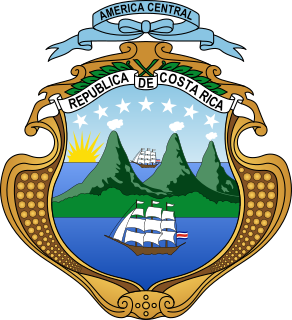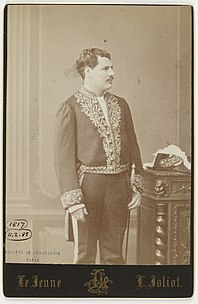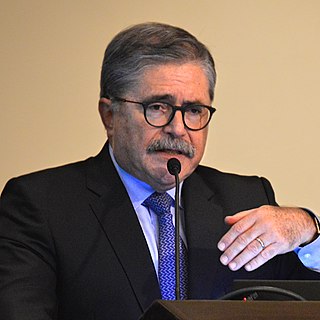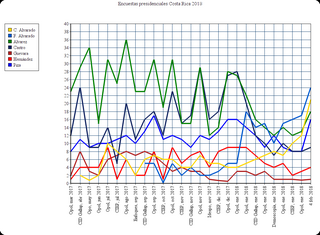| |||||||||||||||||||||||
| |||||||||||||||||||||||
 Map on the left shows the seats won by each party by province. The map on the right shows which party won the plurality in each province in both rounds of the Presidential election. | |||||||||||||||||||||||
| |||||||||||||||||||||||
 |
|---|
| This article is part of a series on the politics and government of Costa Rica |
Legislature |
|
General elections were held in Costa Rica in 2018 to elect both the President and Legislative Assembly. The first round of the presidential election was held on February 4, 2018, with the two highest-ranked candidates being Christian singer and Congressman Fabricio Alvarado Muñoz from the conservative National Restoration Party and writer and former Minister Carlos Alvarado Quesada from the progressive Citizens’ Action Party, gaining 24% and 21% of the votes respectively. As no candidate received more than 40% of the first round vote, a second round run-off election was held on April 1, 2018 and was won by Carlos Alvarado Quesada, with a landslide victory of 60.6% of the vote. [1] [2]

Costa Rica, officially the Republic of Costa Rica, is a country in Central America, bordered by Nicaragua to the north, the Caribbean Sea to the northeast, Panama to the southeast, the Pacific Ocean to the southwest, and Ecuador to the south of Cocos Island. It has a population of around 5 million in a land area of 51,060 square kilometers. An estimated 333,980 people live in the capital and largest city, San José with around 2 million people in the surrounding metropolitan area.

The President of Costa Rica is the head of state and head of government of Costa Rica. The President is currently elected in direct elections for a period of four years, which is not immediately renewable. Two Vice presidents are elected in the same ticket with the president. The president appoints the Council of Ministers. Due to the abolition of the military of Costa Rica in 1948, the president is not a Commander-in-chief, unlike the norm in most other countries, although the Constitution does describe him as commander in chief of the civil defense public forces.

The Legislative Assembly is the unicameral legislative branch of the government of Costa Rica. The national congress building is located in the city capital, San José, specifically in El Carmen District in San José Canton.
Contents
- Electoral system
- Presidential primaries
- Citizens' Action Party
- Libertarian Movement
- National Liberation Party
- Social Christian Unity Party
- Other candidates
- Presidential candidates
- Other presidential candidates
- Campaign
- Polling and voters' behavior
- Polling tampering
- Opinion polls
- Results
- President
- Legislative Assembly
- Reactions
- Domestic
- International
- References
The previously dominant National Liberation Party suffered its worst results to date, ending third in the presidential run for the first time in its history with its candidate former Legislative Assembly President Antonio Álvarez Desanti winning only 18%. Other notable candidates were lawyer and entrepreneur Rodolfo Piza from the center-right Social Christian Unity Party with 16% and right-wing populist Juan Diego Castro with 9%.
A dominant-party system, or one-party dominant system, is a system where there is "a category of parties/political organisations that have successively won election victories and whose future defeat cannot be envisaged or is unlikely for the foreseeable future." Many are de facto one-party systems, and often devolve into de jure one-party systems. Usually, the dominant party consistently holds majority government, without the need for coalitions.

The National Liberation Party, nicknamed the verdiblancos, is a political party in Costa Rica. The party is a member of the Socialist International.

Antonio Álvarez Desanti is a Costa Rican politician, lawyer and businessman who has served twice as President of the Legislative Assembly. He was National Liberation Party candidate for the national elections of February, 2018.
In the 57-seat Legislative Assembly, the National Liberation Party won 17 seats, the National Restoration Party won 14 seats, the Citizens' Action Party won 10 seats, the Social Christian Unity Party won 9 seats, the National Integration Party won 4 seats, the Social Christian Republican Party (an offshoot of PUSC) won 2 seats and left-wing Broad Front won 1 seat.

The National Restoration Party is a political party in Costa Rica. It was founded in 2005 by Carlos Avendaño Calvo mostly by dissidents of Costa Rica's historical Christian party, Costa Rican Renewal, after its then only deputy, Carlos Avendaño Calvo, left. Avendaño would successfully return to Congress because of the party from 2010 to 2014. Even though he had personal differences with Justo Orozco, both were able to work together in defending the same agenda, mainly the conservative views of the evangelical community. The party's candidate in the presidential election of 2014 was Avendaño, who received 1.35 percent of the vote.

The Citizens' Action Party is a center-left political party in Costa Rica.

The Social Christian Unity Party is a centre-right political party in Costa Rica.






























